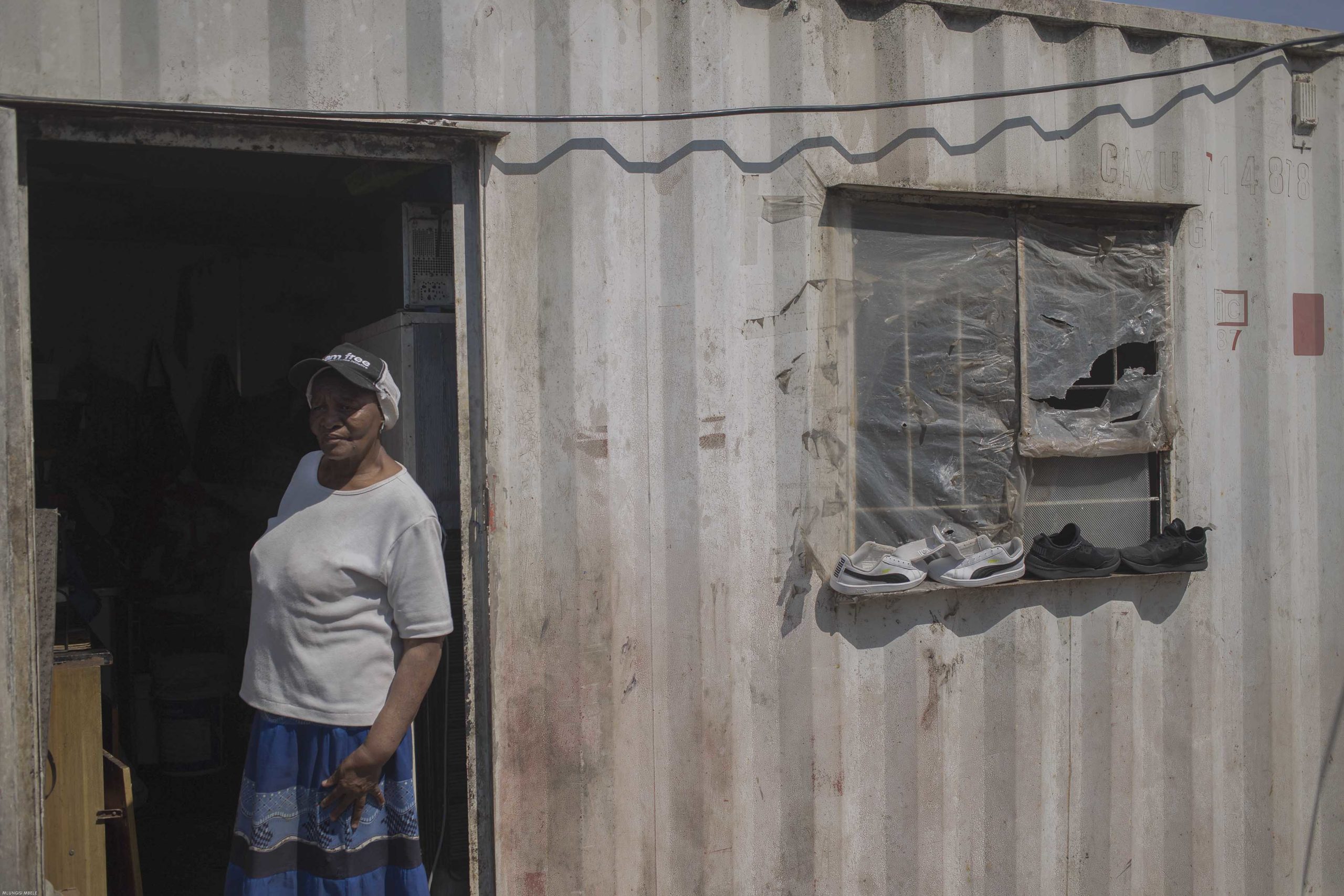The hopefuls of Hammarsdale
Some residents of the township who live in dire conditions trust that casting their vote in the upcoming municipal elections will bring change to their area.
Author:
26 October 2021

Sibusiso Khoza, 53, has lived in Emalangeni in Hammarsdale since 1994. He says when he first got to this area between Pietermaritzburg and Durban, there was no water, electricity or tar roads. Today, standing on the gravel road leading to his house, he is hopeful that the 1 November local government elections will bring change.
“We have big problems here, huge problems. I have been up and down seeking help from managers of different departments for years,” he says.
Khoza became a leader among the residents in the area, as he would query the slow delivery of municipal services that was affecting him but end up voicing the concerns of the community. He says most residents don’t have decent access to water. The Department of Water and Sanitation installed a system more than 20 years ago whereby water flowed into small tanks for each household, but it no longer works. The supply is inconsistent and people sometimes go for days without water.
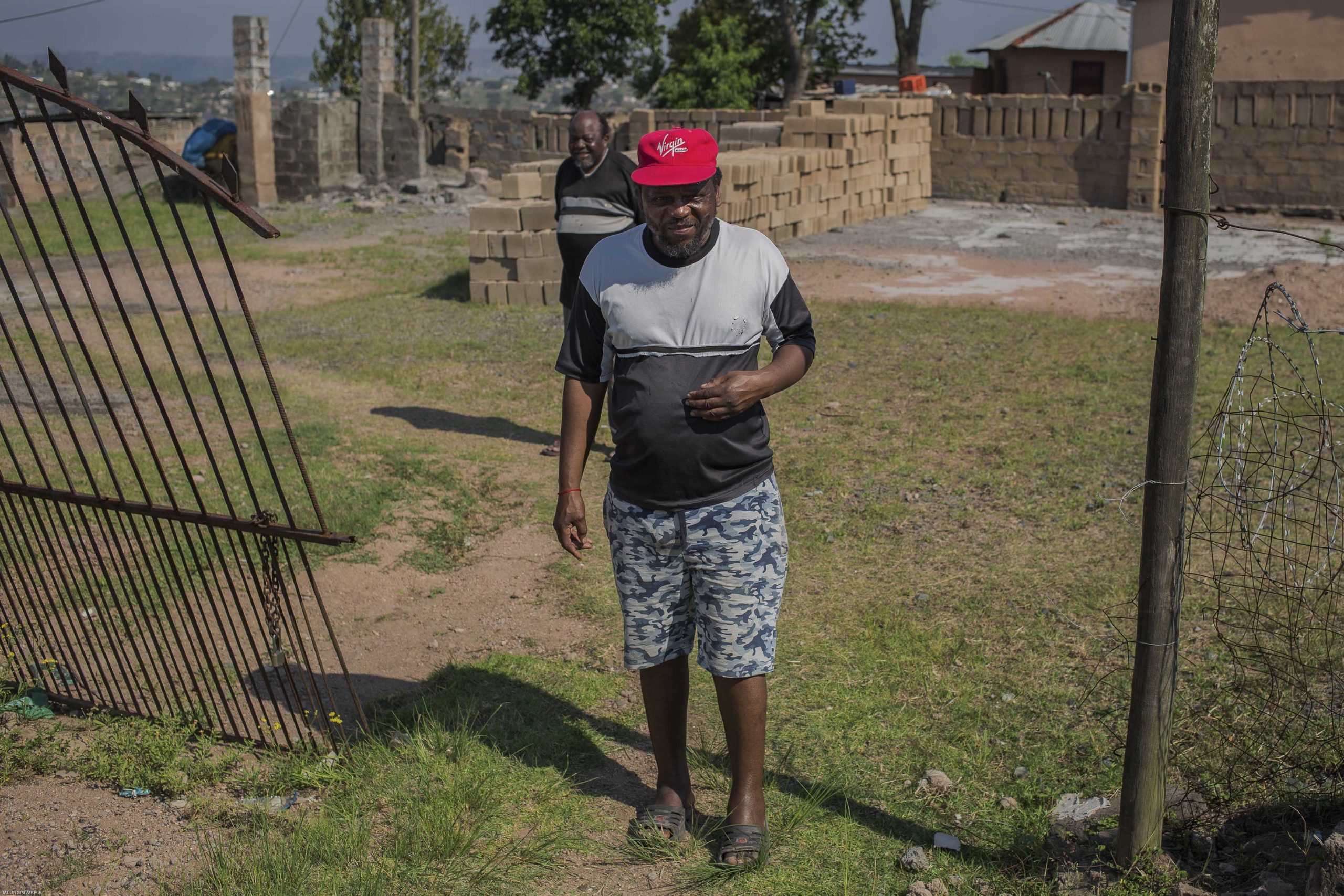
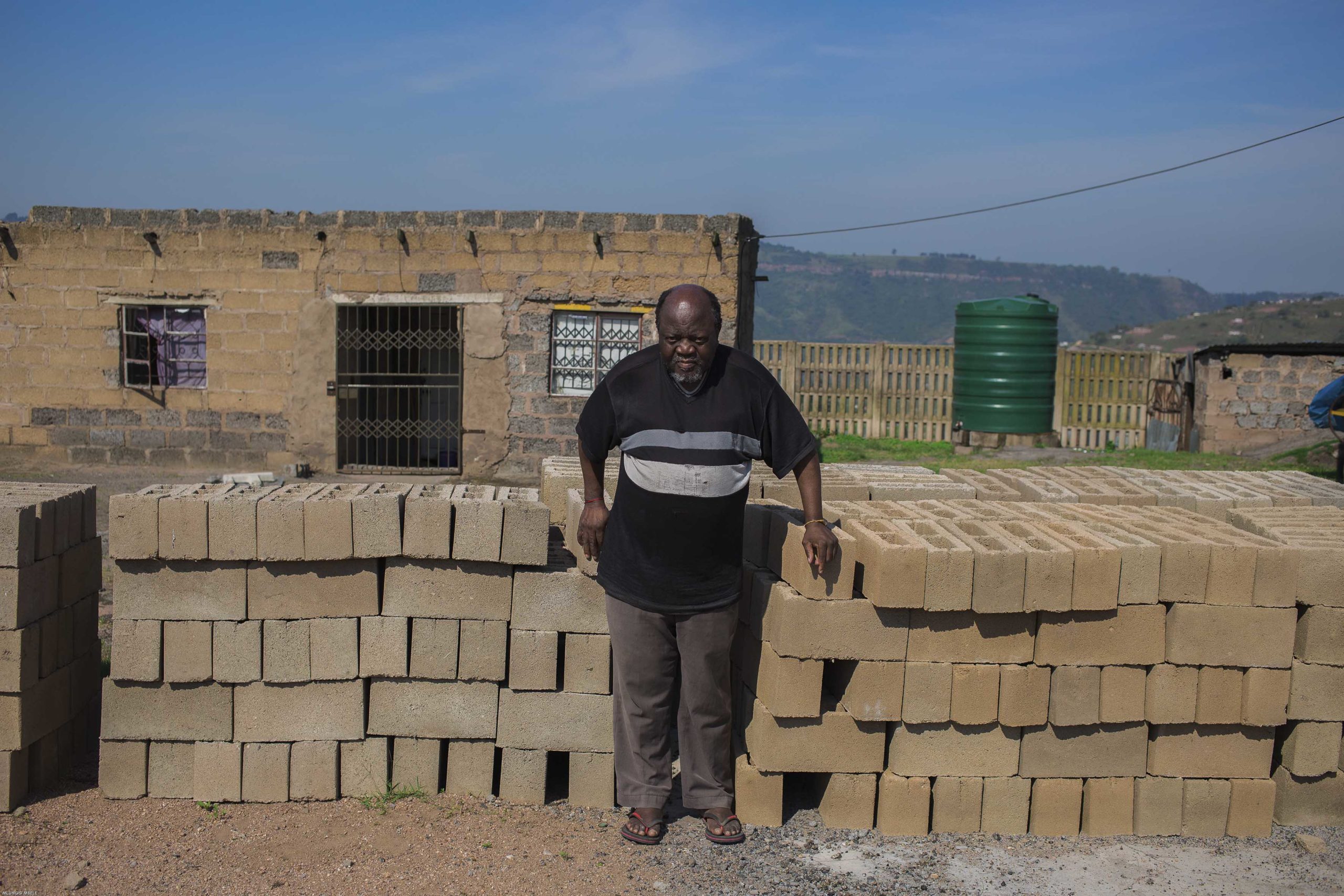
“When we ask, they say that money to fix water was used for Covid-19. There is also the issue of electricity, where a lot of houses applied over 10 years ago to have the municipality install electricity boxes to have electricity in their homes. Now people are forced to make their [informal] connections, because otherwise they would sit in the dark,” says Khoza.
Unemployment is high in Hammarsdale and some residents live in half-built houses as they can’t afford to complete them. Others live in mud houses, while some rent accommodation. Khoza’s brother, Obed Khoza, used his pension payout from his days as a police officer to build small rooms to let. The 57-year-old’s yard is filled with broken bricks and cement rubble. He lives in a three-room house that he plans to extend. This is partly why the Khoza brothers feel passionate about securing RDP houses for residents in this area.
“As you can see there is not a single government house here, yet a lot of people applied. We found out that this land is owned by the king and was told to re-register after he permitted houses to be built here. That was five years ago, so we believe whoever will come in the new administration will have an easier job as we were told the budget has been allocated,” says Sibusiso.
The forgotten 33
In the Magaba area, 33 families live in shipping containers that were meant to be temporary homes while their RDP houses were being built. Eleven years later, they are still living in the containers.
Ncamsile Makhathini, 32, says it is so hazardous that she gave up living with her children and moved them to relatives. “We share a single toilet seat. There are rats, cockroaches and I have a weak immune system so the environment is bad for me. When it rains, the water comes in, and when it gets too hot, you cannot even sit in the container. It’s unbearable.”
Makhathini says she moved into the container in 2010. The RDP house she was renting had a defective roof and the roofs were getting redone. She was excited at first, believing her life would change when she got a new place.
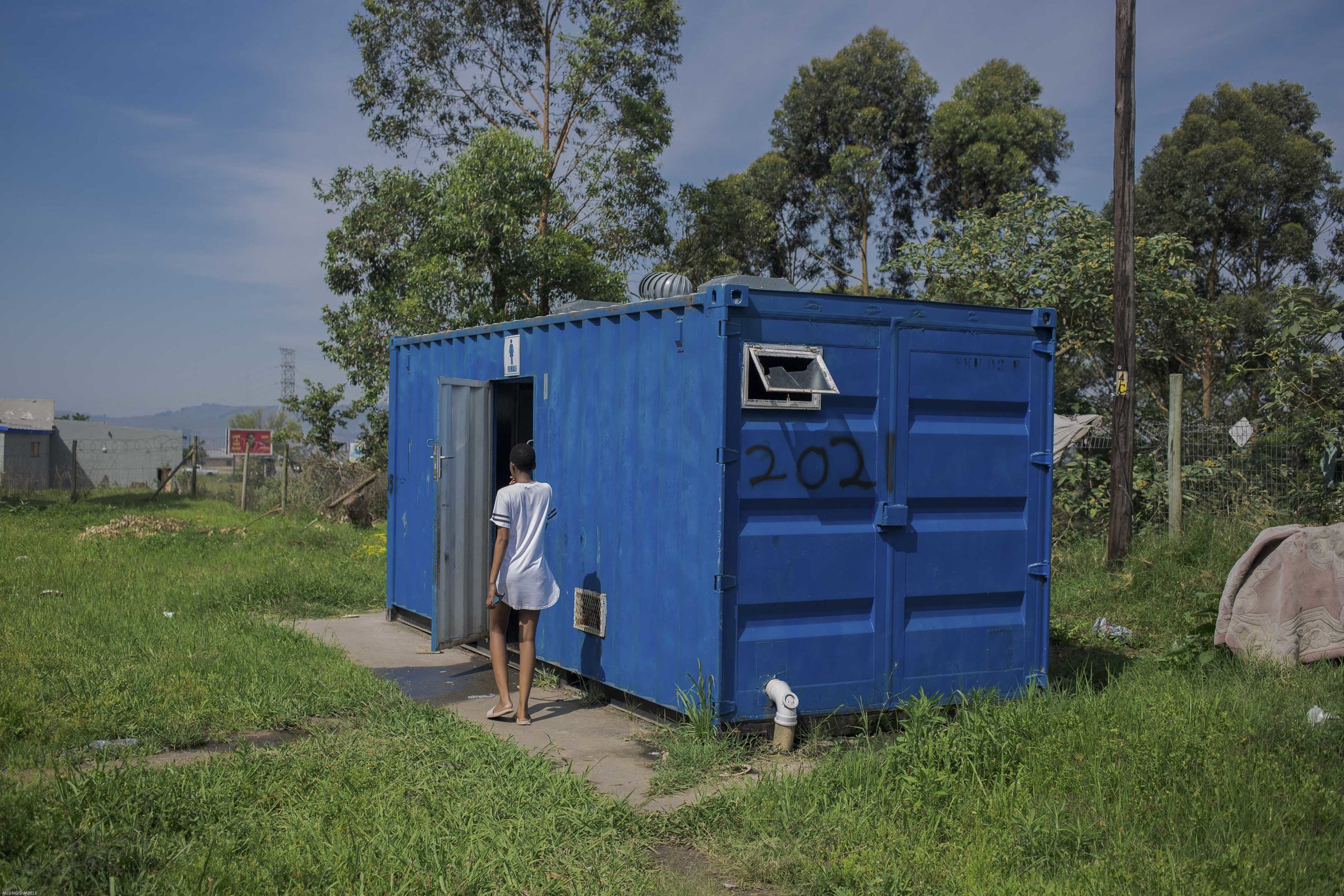
“It is painful being stuck in this living condition. We have been told many stories. Three years ago houses that were allocated to us just across the street were given to other people and we got no explanation for that. Recently we were told money to build the houses was put into the Covid issue. My question is Covid is not going to end soon, so what will happen to us?”
While national surveys indicate a steep decline in trust in political parties, voter registration and intention to vote in the upcoming elections, some residents of Hammersdale remain committed to electoral politics. “I will vote because I hope that this person [ANC candidate, Nkosinathi Black Majola] that will come in will look out for our interests. Even before he was a politician, he helped people whether they are hungry or something else. So when a person shows ubuntu, you trust they will do the right thing,” said Makhathini.
Disappointment and frustration
Innocentia Makhethe, 71, also lives in one of the containers. She says simply that “it’s my right” when asked if she will vote. She moved into the container in 2011 and lived with her daughter, who has seven children, three of which live with relatives. Makhethe has lived with her other four grandchildren, who are aged between five and 18, since her daughter left for Pietermaritzburg.
The house she lived in would flood whenever it rained, because the land on which it is built is low-lying. She says the councillor at the time stepped in and they moved into the container, under the impression that it would be a short while until she had her own house back.
Makhethe says there is little space for her family in the container, especially since she arrived with belongings that fit into a four-room house. “You can’t even move in this room, no one can live in a room like this. I also lost some of my belongings when a fire suddenly came from behind a wardrobe I used to have,” she says, pointing at the burn marks still on the wall. The white container is showing signs of decay, with patches of brown rust.
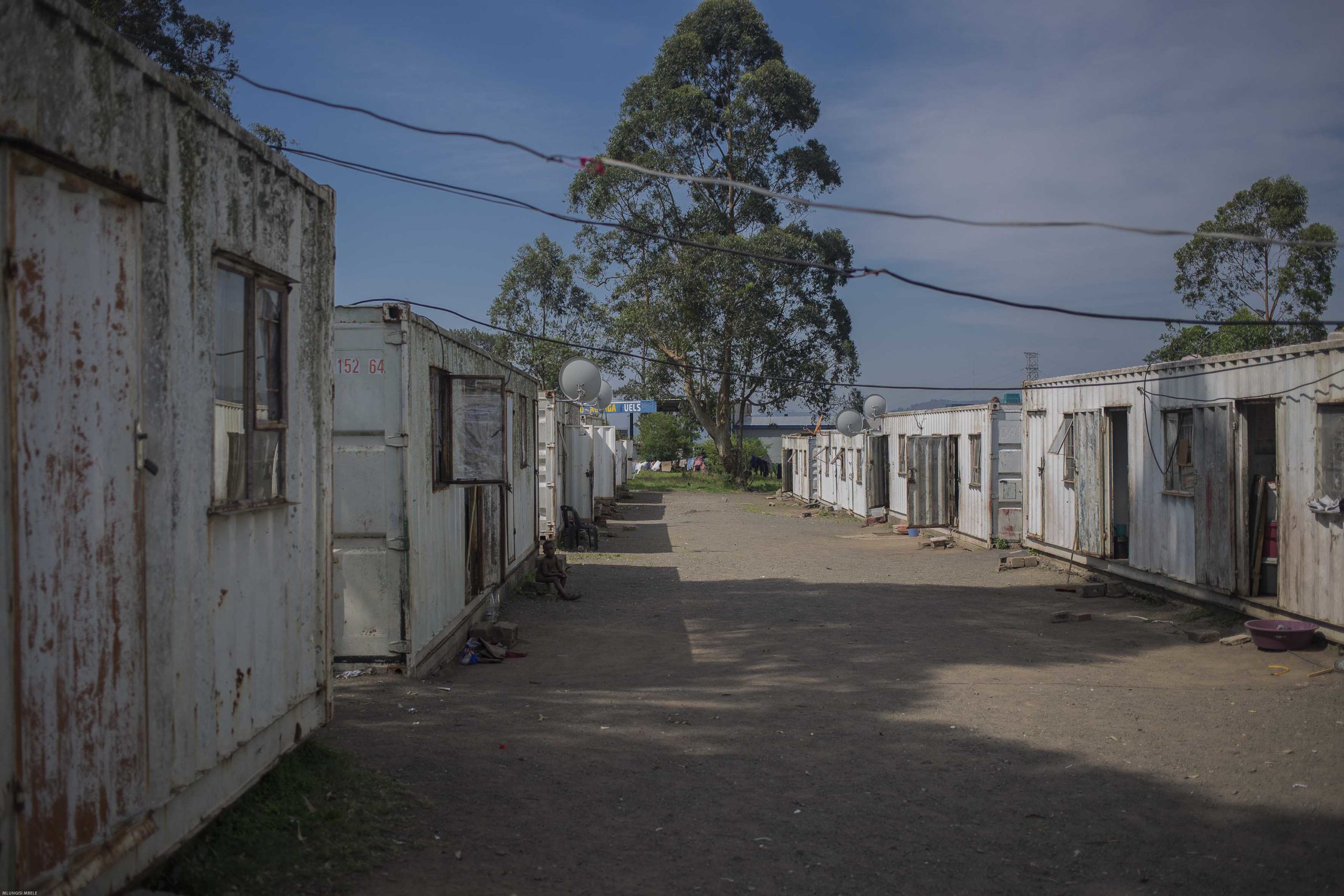
“I sometimes feel sad when I think of that day. I lost a lot of important documents and had to start all over again. This is a hard life to live, but the people from housing came after we lost the houses we had registered for and asked that we register again … We are waiting for them to start building the new ones,” says Makhethe.
These residents are heading to the polls, but the disappointment and frustration at previous administrations is clear in Hammarsdale.
Makhathini says the slow delivery of municipal services is because leaders lack empathy and are disconnected from those they lead. “They have never lived this life. If they can be in that container while it is hot and feel how unbearable it is, or be in there while the rain is coming in through the holes, they would have more care and take action.”
Naledi Sikhakhane is the 2022 Eugene Saldanha Fellow in social justice journalism.
Correction, 24 May 2022: The Eugene Saldanha Memorial fellowship is supported by the SET. It was incorrectly referred to as a fund.
